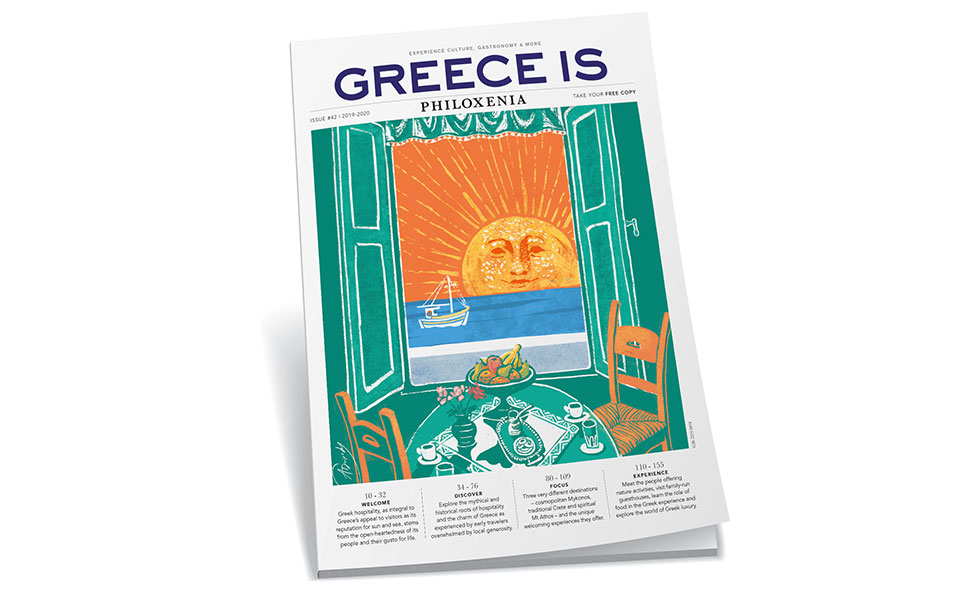A Summer Visit to the Acropolis: What Tourists...
Tourists share the highs and lows...

The main idea behind the Greece Is Philoxenia issue, is that this Greek word has additional layers of meaning not captured by its English equivalent, hospitality. It’s not just “the act of being friendly and welcoming to guests and visitors.” To be precise, it’s not just an “act.” It is a code of values with deep roots stretching all the way back to antiquity, one shaped in part by myth, history and religious beliefs.
Philoxenia is a state of mind and a way of life with which Greeks have been nurtured over the centuries. In more recent times, many have applied its principles in business ventures that make up what we today call the “tourism industry.” It is also a subject of anthropological and sociological study, and not beyond scrutiny; the notion that philoxenia is part of the “Greek DNA,” for example, is challenged, even by writers in our magazine.
Closely related to philoxenia is another famous Greek word, which often moves, inspires and baffles foreigners, as it has no direct equivalent in other languages: philótimo. “This concept concerns personal honor – the ability to do something for someone above and beyond what is dictated by feelings or professional obligations, an ability to transcend even personal animosity and grant them a favor with no strings attached,” writes Constantine Buhayer in his book “Culture Smart Greece” (Kuperard Publications), a pocket-sized guide that contains a trove of insightful information on the customs and culture of Greece.
Last but not least, philoxenia is sister to geneodoria (literally meaning “brave at giving presents”) – the famed Greek generosity and yet another key trait in the complex character of this people. You are likely to witness, or better yet receive, expressions of geneodoria everywhere, whether this involves finding yourself a guest at the table of people you’ve never met before on an island or in some remote village, or witnessing something that worryingly resembles a fight over who gets the privilege of picking up the bill at a taverna for the entire party. As Buhayer advises in his book, “the best response is to go with the flow and spread some of it around yourself.”
If tourism is the major driving force of the Greek economy, then philoxenia is its fuel. It is an attitude that can be encountered in small family-run guesthouses and luxury resorts alike; in hedonistic Mykonos and in the sacred monasteries of Mt Athos; in the initiatives of the new breed of tourism professionals highlighting the country’s unsung natural treasures, and in those of the entrepreneurs always looking for new ways to offer their guests original and memorable experiences.
All of the above contribute, in one way or another, to achieving the main goal of the Greek tourism industry over the next decade: to make the shift from destination promotion – which has the aim of attracting more visitors – to a sustainable and diverse destination management, one that works to the benefit of foreign visitors and locals alike.
This article was originally published in the print magazine Greece Is Philoxenia 2019-2020. To browse or download a digital copy of the magazine click here. Hard copies can also be ordered from anywhere in the world via our e-shop at only the cost of postage and packaging.
Tourists share the highs and lows...
Mountain hotels near Greece’s leading ski...
Before passports and package tours, pilgrims...